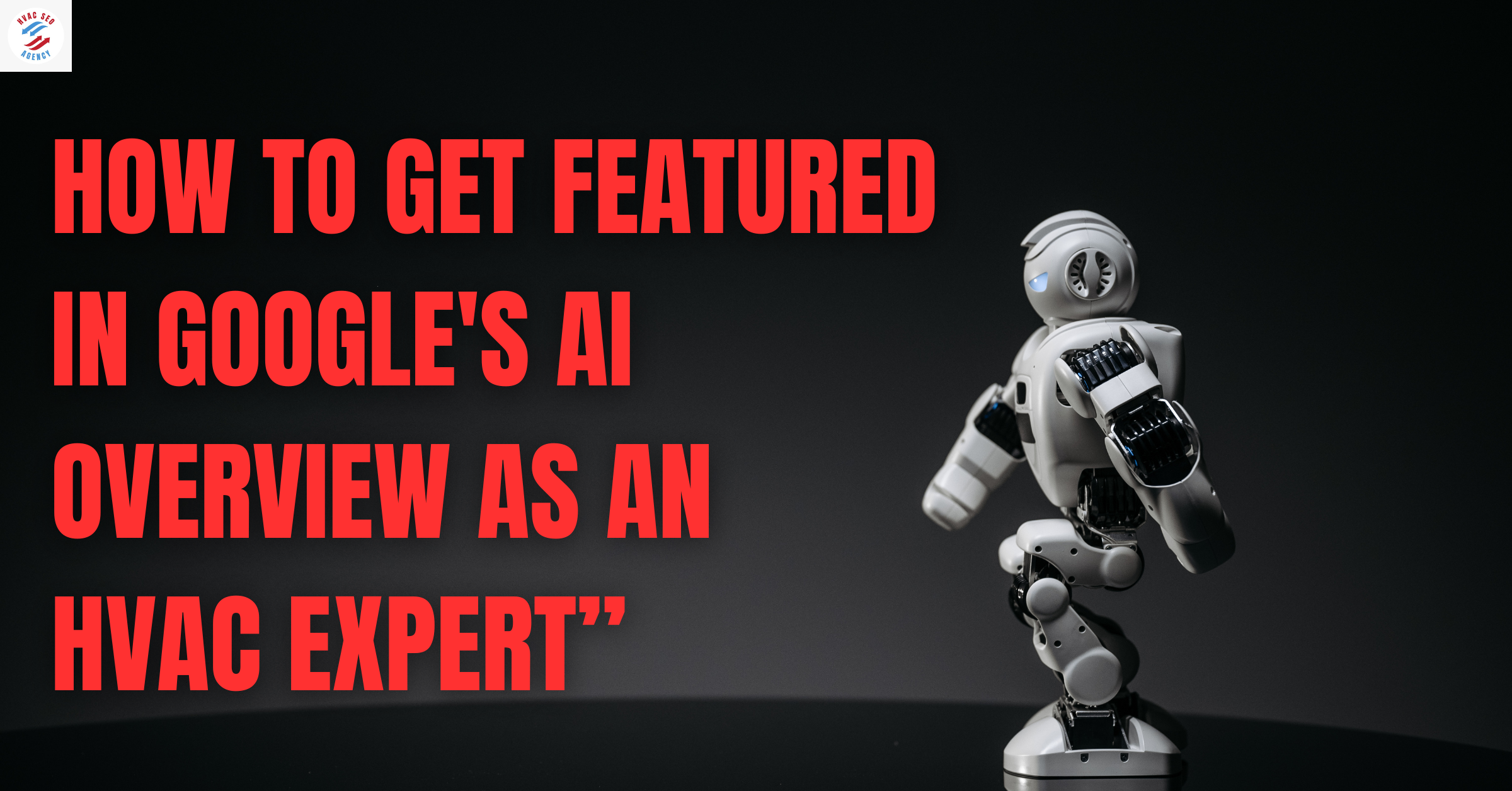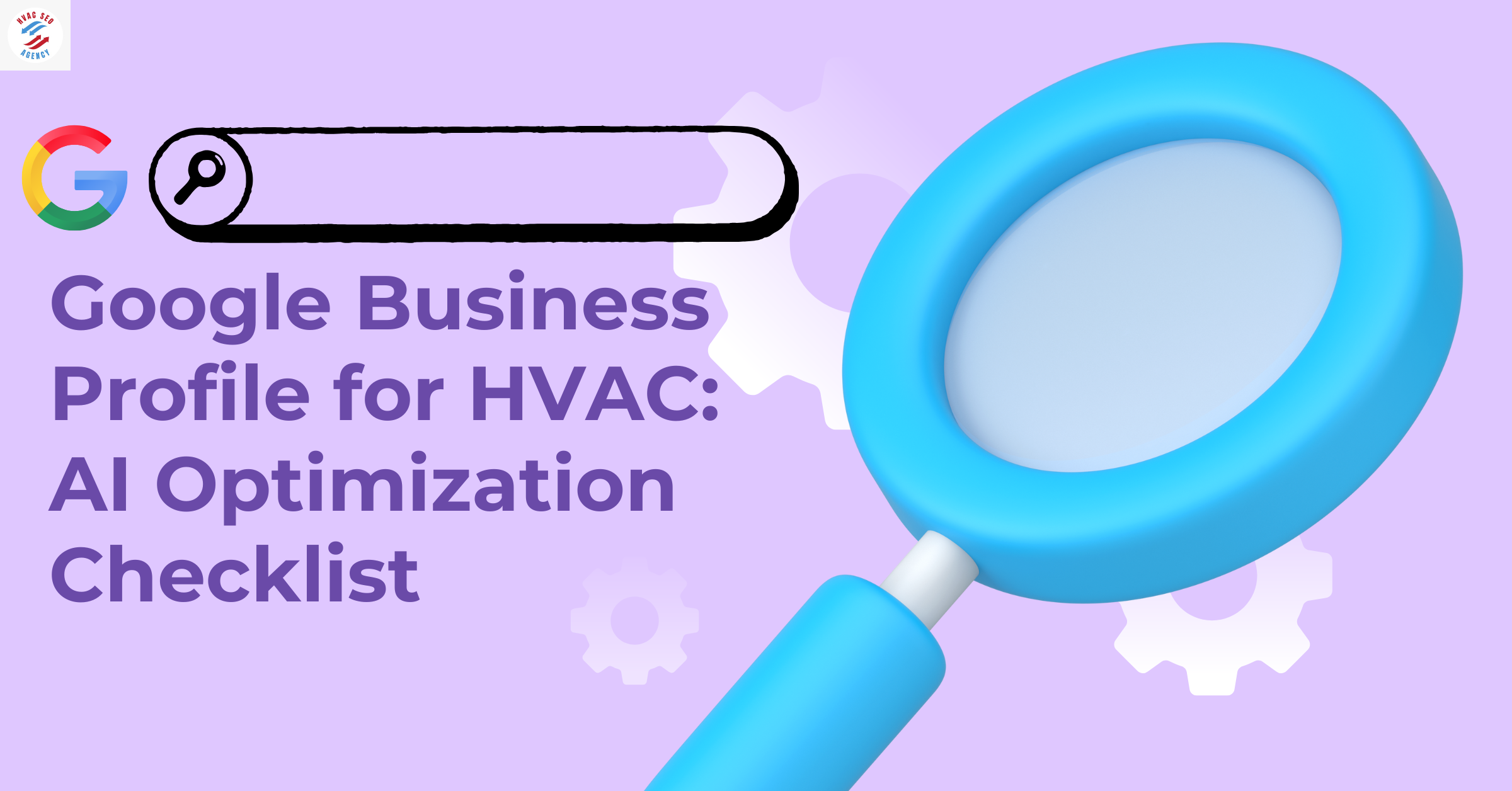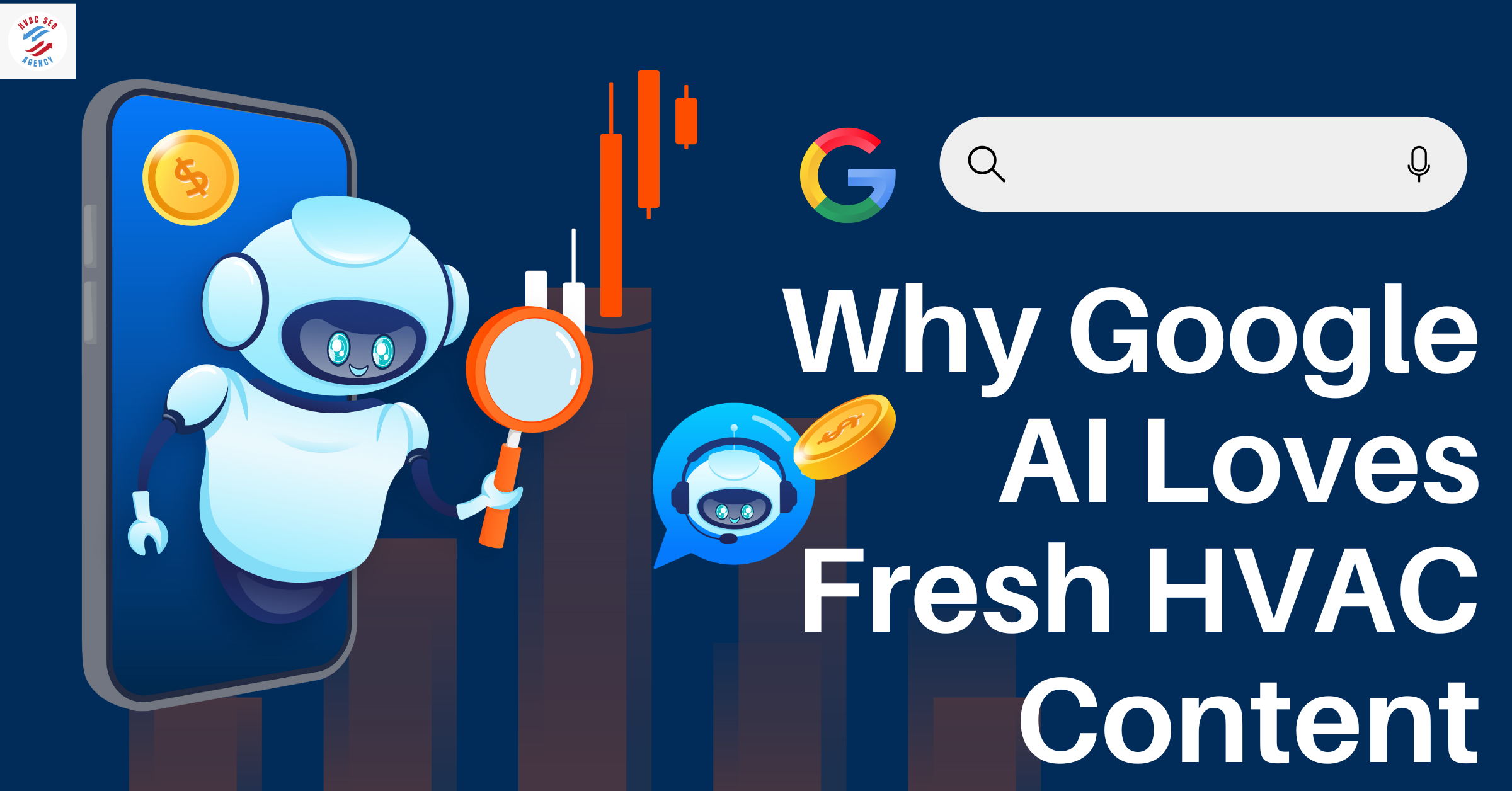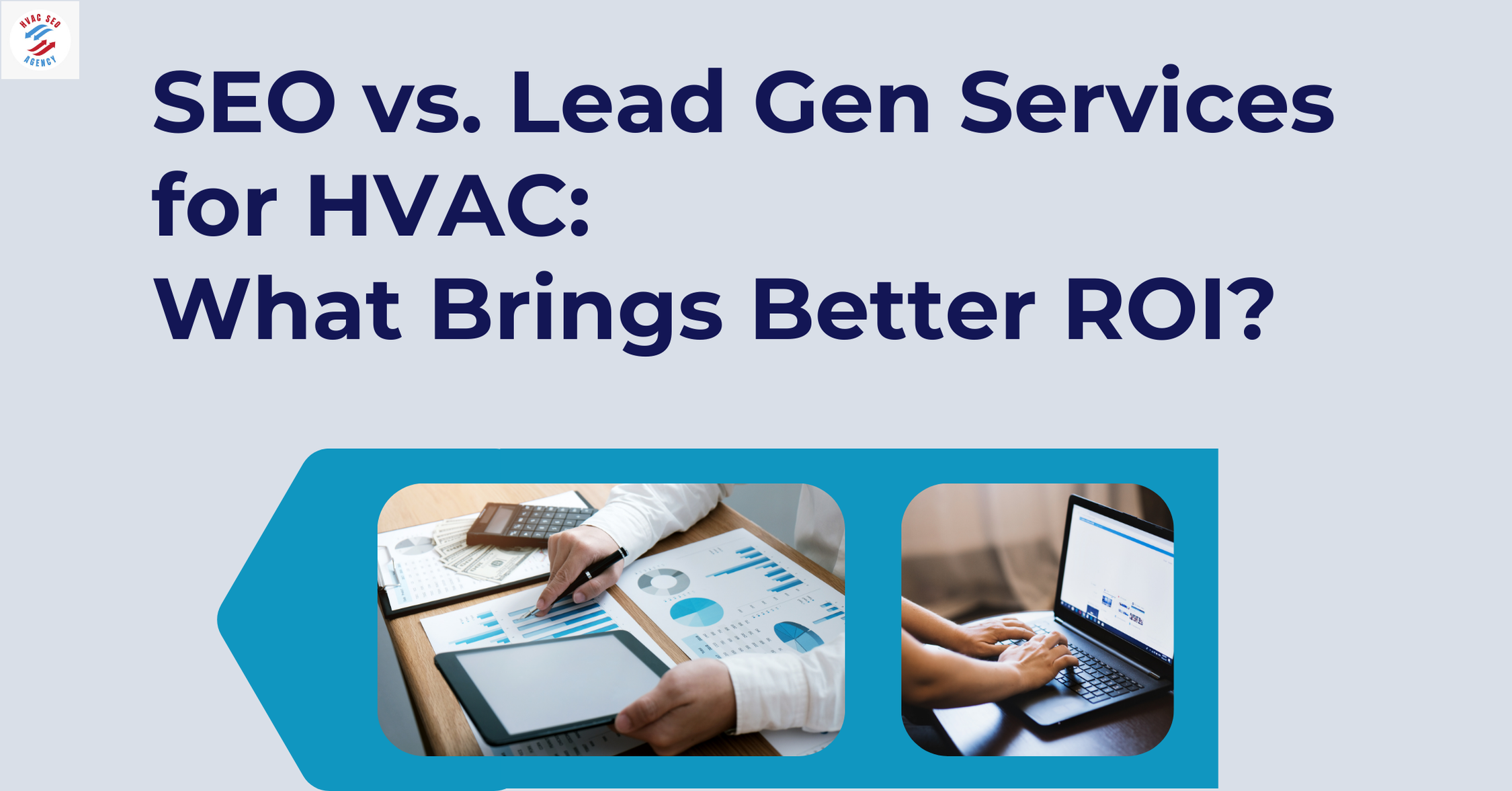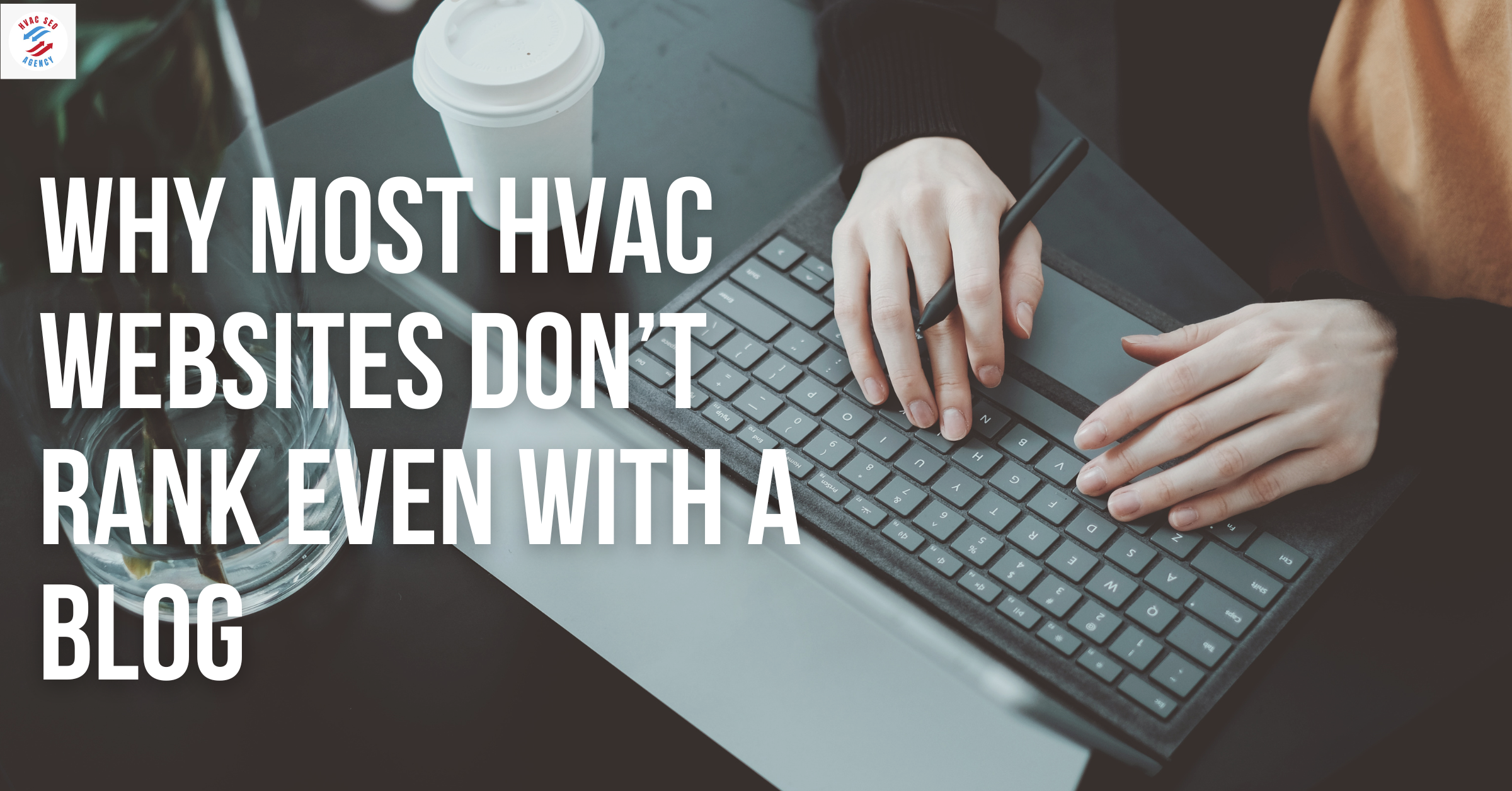HVAC Filters: How Often Should You Replace Them for Optimal Performance?
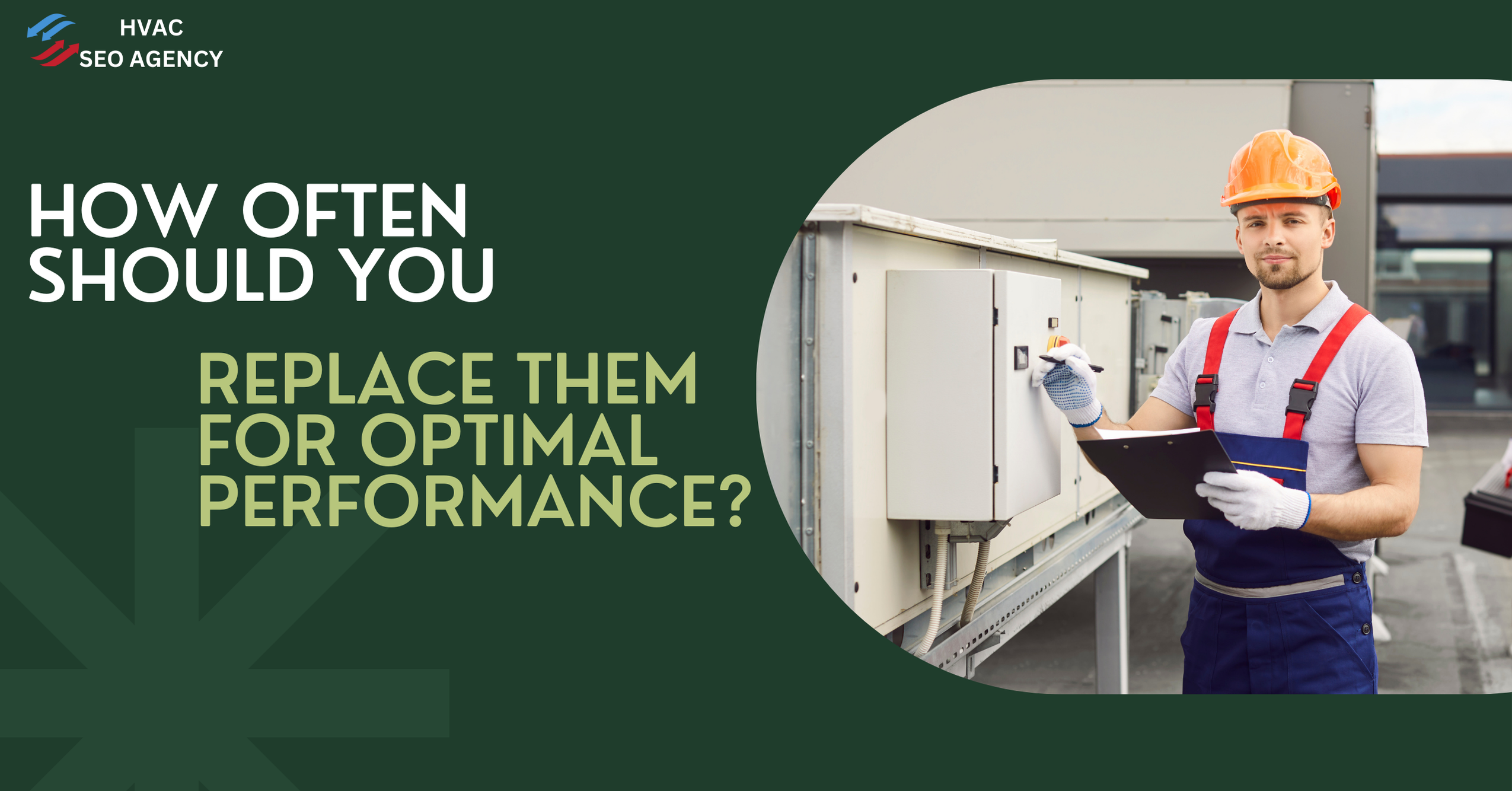
1.Why HVAC Filter Replacement is Critical for Optimal Performance
When was the last time you checked your HVAC filter? If you're like most homeowners, you probably don’t think about it until there’s a problem. However, HVAC filter replacement is a small but essential task that can significantly impact your home’s air quality, energy efficiency, and HVAC system performance. A clogged or dirty filter forces your system to work harder, leading to higher energy bills, poor indoor air quality, and even system malfunctions. An expert HVAC SEO Agency can help businesses in your area optimize their online presence, ensuring they provide essential maintenance services like HVAC filter replacement. Keeping your system clean is not only crucial for performance, but it also helps avoid costly repairs, prolongs the lifespan of the unit, and provides healthier air for your family. Regular filter replacement, combined with professional HVAC services, maximizes comfort and efficiency at home or in the office.
The Hidden Impact of Dirty HVAC Filters
A clogged HVAC filter reduces airflow, making it harder for your heating and cooling system to maintain the desired temperature. Over time, this not only strains the HVAC unit but also increases energy consumption. According to the U.S. Department of Energy, dirty filters can increase HVAC energy use by 10-15%. Additionally, the EPA (Environmental Protection Agency) reports that indoor air pollution is often 2 to 5 times worse than outdoor air due to poor air filter maintenance.
Statistics on HVAC Filter Neglect and Energy Loss
Regular air filter maintenance helps avoid these issues, ensuring smooth airflow, cleaner indoor air, and lower electricity costs.
How Often Should You Replace HVAC Filters?
Many homeowners wonder, "How often should I replace my HVAC filter?
The answer depends on several factors:
Basic fiberglass filters: Replace every 30 days
Pleated filters: Change every 60-90 days
HEPA filters: Replace every 6-12 months
Electrostatic (reusable) filters: Clean every 3-6 months
However, factors like pets, allergies, and environmental conditions can change the timeline. This is why HVAC SEO Agency in [City] recommends checking filters every month and replacing them as needed.
Did You Know?
A dirty HVAC filter can lead to 30% more HVAC repair calls due to system overheating.
By staying ahead with regular HVAC filter replacement, you can save money, maintain clean air, and extend the life of your system.
2. Why Regular HVAC Filter Replacement is Crucial
Ignoring HVAC filter replacement might seem harmless, but it leads to severe consequences for both your home and health. From increased energy bills to respiratory issues, a clogged filter does more damage than you might think.
1. HVAC System Longevity and Energy Efficiency
A clean filter allows for uninterrupted airflow, ensuring that your system doesn’t overwork. When filters are neglected, they become clogged with dust, pet dander, and debris, forcing the HVAC unit to consume more energy.
According to EnergyStar, a dirty filter can cause your HVAC system to consume 15% more energy.
Regular air filter maintenance prevents system overheating, which can shorten your HVAC lifespan by 3-5 years.
2. Poor Indoor Air Quality & Health Risks
One of the biggest reasons for consistent HVAC filter replacement is indoor air quality. The EPA reports that 68% of indoor air quality issues are caused by improper HVAC maintenance, including dirty filters.
Clogged filters trap pollutants like mold spores, bacteria, and allergens, recirculating them in your home.
Homes without proper air filter maintenance experience 40% more allergy-related health issues, according to the American Lung Association.
Who Is Most Affected by Poor Indoor Air Quality?
To reduce these risks, experts from HVAC SEO Agency in Dallas recommend changing filters at least every 60 days for an average home and every 30 days for pet owners or allergy sufferers.
3. Cost Savings Through Regular Maintenance
HVAC repairs and replacements are expensive. A neglected filter can lead to $500+ in annual HVAC repairs or even require a complete system replacement costing $5,000-$10,000. However, replacing your HVAC filter regularly costs as little as $10-$20 per filter—a small investment for huge savings.
Table: Annual Cost Breakdown for HVAC Maintenance
Regular air filter maintenance not only improves efficiency but also prevents costly breakdowns.
3. How Often Should You Replace Your HVAC Filter?
Many homeowners and business owners ask, "How often should I replace my HVAC filter?" The answer isn’t one-size-fits-all, as several factors affect the replacement frequency. While general guidelines exist, the best approach is to check your HVAC filter monthly and replace it based on condition, usage, and indoor air quality needs.
General HVAC Filter Replacement Guidelines
However, certain factors require more frequent HVAC filter replacement:
1. Pets and Households with High Dander Levels
Homes with dogs, cats, or multiple pets generate more airborne fur and dander, which clogs filters faster.
Recommended frequency: Change filters every 30-45 days if you have one pet, and every 30 days for multiple pets.
2. Allergy Sufferers and People with Respiratory Issues
For people who suffer from asthma, allergies, or respiratory conditions, replacing filters every 20-45 days helps maintain optimal indoor air quality.
High-MERV-rated filters (MERV 11-13) work best for filtering allergens.
3. Environmental Conditions (Pollution, Wildfires, and Dust Levels)
Urban areas with high pollution: Change every 45-60 days.
Homes in wildfire-prone areas: Replace every 30 days or sooner during wildfire season.
Dusty regions (desert areas): Monthly air filter maintenance is necessary.
4. Seasonal HVAC Usage (Winter vs. Summer)
Your HVAC usage spikes in summer and winter, increasing dust accumulation.
During peak seasons: Replace filters every 30-60 days.
Off-season months: Filters may last up to 90 days.
5. Commercial HVAC Systems (Office Spaces & High-Traffic Areas)
Businesses, restaurants, and commercial buildings require more frequent HVAC filter replacements due to high foot traffic and pollutants.
Office buildings: Every 30-60 days.
Medical facilities: Every 2-4 weeks.
Industrial workplaces: Every 1-2 weeks, depending on air contamination levels.
4. What Happens If You Don’t Change Your HVAC Filter?
Neglecting HVAC filter replacement can lead to serious consequences, not just for your HVAC system but also for your health and finances. Many homeowners don’t realize how much damage a clogged filter can cause until their system breaks down or their indoor air quality deteriorates.
HVAC System Lifespan vs. Regular Filter Replacement
1. Increased Energy Bills (Up to 15% Higher Costs!)
A dirty filter blocks airflow, making your HVAC system work harder to push air through. This inefficiency results in:
15% higher energy consumption (Source: EnergyStar).
$120+ per year in extra electricity costs for a standard home.
Businesses and commercial buildings could see even higher energy spikes.
2. Overheating and Complete HVAC System Failure
When airflow is restricted, your HVAC components (blower motor, compressor, coils) overheat, leading to:
Frequent breakdowns.
Expensive repairs ($500–$1500 per service call).
A potential $5,000–$10,000 HVAC system replacement if severe damage occurs.
Fact: The #1 cause of HVAC system failure is neglected air filter maintenance.
3. Poor Indoor Air Quality & Health Risks
A clogged filter can’t trap pollutants effectively, allowing dust, mold spores, pollen, and bacteria to circulate indoors.
Homes with elderly individuals, children, or asthma sufferers should prioritize HVAC filter replacement to maintain a healthy environment.
4. Shortened HVAC Lifespan (Lose 3-5 Years of Usage!)
HVAC systems are designed to last 15-20 years, but lack of regular air filter maintenance can reduce lifespan by 3-5 years.
Overworked HVAC units break down faster, leading to costly early replacements.
A $20 filter replacement every 60 days can prevent a $10,000 HVAC replacement.
5. Strange Odors & Mold Growth in Your HVAC System
A dirty filter traps moisture, creating a perfect breeding ground for mold and mildew. Signs of mold due to neglected HVAC filter replacement include:
Musty smells from vents.
Visible mold growth on the filter.
Increased allergy symptoms or throat irritation.
5. Signs Your HVAC Filter Needs Immediate Replacement
Most homeowners and business owners don’t realize their HVAC filter replacement is overdue until their system starts underperforming. However, there are clear warning signs that indicate it’s time for a new filter. Ignoring these signs can lead to higher energy bills, poor air quality, and potential HVAC system failures.
1. Visible Dirt and Dust Buildup on the Filter
A simple visual inspection can tell you whether your HVAC filter is still effective. If you notice:
A thick layer of dust and debris on the filter.
Dark or gray discoloration.
Dust blowing out of vents when the HVAC system turns on.
These are clear signs that your filter needs immediate replacement. A clogged filter reduces airflow, forcing the system to work harder.
2. Reduced Airflow from Vents
A dirty filter blocks airflow, causing weak ventilation in your home or office. If you notice that:
The air from your vents feels weaker than usual.
Your HVAC system runs longer but doesn’t cool or heat effectively.
This means restricted airflow is straining your system. The best way to prevent this is through routine air filter maintenance.
3. Sudden Increase in Energy Bills
A clogged HVAC filter forces your system to work twice as hard to push air through. This leads to:
15% higher energy consumption (Source: U.S. Department of Energy).
An average homeowner paying $120+ extra per year on energy bills.
Replacing your HVAC filter regularly can help you cut down on energy waste and save money.
4. Musty Odors or Increased Allergy Symptoms
A dirty HVAC filter can become a breeding ground for mold, bacteria, and trapped allergens. If you notice:
Persistent musty or stale odors in your home.
Worsening allergies, sneezing, or throat irritation.
Increased dust buildup on furniture, despite regular cleaning.
Then, it’s time for an immediate HVAC filter replacement. HVAC SEO Agency in [City] recommends checking your filter every 30 days if you suffer from allergies.
5. Strange Noises Coming from Your HVAC System
If your HVAC system makes whistling, rattling, or unusual sounds, it could be due to restricted airflow from a clogged filter.
A whistling noise often indicates your filter is too clogged to allow proper airflow.
Rattling or banging sounds could mean your blower motor is working harder than normal to compensate for a blocked filter.
To avoid costly repairs, replace your HVAC filter on time and schedule air filter maintenance as needed.
6. Choosing the Right HVAC Filter for Your Home
Not all HVAC filters are created equal. Choosing the right filter for your home or business impacts air quality, energy efficiency, and system performance. Whether you’re dealing with pet dander, allergies, or commercial air filtration, selecting the best filter is crucial for effective air filter maintenance.
Understanding MERV Ratings: What Do They Mean?
MERV (Minimum Efficiency Reporting Value) ratings indicate how effectively a filter captures airborne particles. Higher MERV ratings provide better filtration but may restrict airflow if not compatible with your HVAC system.
A higher MERV filter (13-16) provides better air filtration but may require a system upgrade to handle reduced airflow.
Types of HVAC Filters and Their Advantages
Choosing the right HVAC filter replacement depends on your home or business needs.
1. Fiberglass Filters (MERV 1-4) – Budget-Friendly, Minimal Filtration
Cheapest option (Cost: $1-$5 per filter).
Needs replacement every 30 days.
Best for short-term use but doesn’t trap smaller pollutants.
2. Pleated Filters (MERV 5-8) – Standard Choice for Homes
Captures dust, pollen, mold spores, and pet dander.
Better airflow balance than fiberglass filters.
Lasts 60-90 days, suitable for standard HVAC systems.
3. HEPA Filters (MERV 13-16) – Best for Allergy Sufferers
Removes 99.97% of airborne particles, including bacteria.
Ideal for homes with asthma sufferers or medical environments.
May require professional installation to avoid airflow issues.
4. Electrostatic Filters (Washable) – Reusable, Eco-Friendly Option
Can be washed and reused multiple times.
Captures finer particles, but needs monthly cleaning.
Best for homeowners who want a long-term, cost-effective solution.
Which HVAC Filter is Right for You?
7. How to Replace an HVAC Filter
Replacing your HVAC filter is a simple yet essential part of air filter maintenance. Whether you're a homeowner or a business owner, proper HVAC filter replacement ensures your system runs efficiently, improves indoor air quality, and reduces strain on the unit.
Step-by-Step Guide to HVAC Filter Replacement
Step 1: Turn Off Your HVAC System
Before changing the filter, turn off the HVAC system completely. This prevents dust and debris from being pulled into the system while the filter is removed.
Step 2: Locate the Filter Compartment
The filter is usually found in one of the following locations:
Return air duct (typically near the ceiling or floor vents).
Inside the furnace or air handler unit (behind a small panel).
Behind a wall-mounted vent (common in larger HVAC systems).
Tip: If you're unsure where your HVAC filter is located, refer to your system’s user manual.
Step 3: Remove the Old Filter
Carefully slide the old filter out to prevent dust from spreading.
Check the filter’s size (usually printed on the frame).
Dispose of disposable filters properly—never attempt to clean or reuse them.
Step 4: Insert the New Filter Correctly
Make sure the airflow direction arrows on the filter match the arrows on your HVAC unit.
Insert the filter firmly into the compartment.
Ensure there are no gaps around the edges where air can bypass the filter.
Step 5: Secure the Panel and Restart Your HVAC System
Once the new filter is in place:
Close the filter compartment securely.
Turn the HVAC system back on.
Monitor the airflow and ensure the system is running smoothly.
Step 6: Set a Reminder for the Next Replacement
For standard homes: Replace the filter every 60-90 days.
For homes with pets or allergies: Replace every 30-45 days.
For commercial HVAC systems: Replace every 1-2 months (or more often in high-traffic areas).
Table: Quick Reference Guide for HVAC Filter Replacement
By following this simple HVAC filter replacement guide, you can improve energy efficiency, prevent breakdowns, and maintain cleaner indoor air.
8. Best Practices for HVAC Filter Maintenance
Proper air filter maintenance goes beyond just replacing your HVAC filter—it involves routine inspections, smart tracking, and preventative care to keep your system in top condition. Here are the best practices to ensure HVAC efficiency and longevity.
Impact of Regular Air Filter Maintenance on HVAC Efficiency
1. Check Your HVAC Filter Every Month
Even if your filter has a 60-90 day lifespan, it’s best to inspect it monthly. Factors like pet hair, dust levels, and seasonal changes may require earlier replacements.
2. Set Up a Reminder for Replacements
To ensure timely HVAC filter replacement, set a reminder:
Manually (Phone/Calendar Notification) – A simple alert every 60 days.
Smart Thermostats (Automated Alerts) – Many modern HVAC systems notify users when airflow is restricted.
3. Keep the Surrounding Area Clean
Vacuum and dust regularly to minimize the amount of debris getting trapped in the filter.
Seal air leaks in ducts to prevent unfiltered air from entering the system.
4. Consider Upgrading to High-Performance Filters
Standard pleated filters work for most homes, but HEPA filters are ideal for allergy sufferers.
Businesses and commercial buildings benefit from higher MERV-rated filters that capture fine dust and pollutants.
If energy efficiency is a concern, check with an HVAC SEO Agency in Orlando to optimize your system.
5. Schedule Professional HVAC Inspections
Even with regular air filter maintenance, it’s important to have annual HVAC check-ups. Professional technicians can:
Inspect airflow and system efficiency.
Detect early signs of wear and tear.
Recommend better filter options based on your indoor air quality needs.
6. Avoid Overusing High-MERV Filters in Standard Systems
Many homeowners assume higher MERV-rated filters are always better, but in some cases, they restrict airflow too much, making your HVAC system work harder.
Tip: If switching to a high-efficiency filter, consult a HVAC SEO Agency in Miami to ensure it won’t strain your system.
7. Clean Ducts and Vents Periodically
Dirty ductwork accumulates dust and debris, reducing the effectiveness of your filter. Schedule:
Duct cleaning every 3-5 years for residential homes.
Annual duct maintenance for commercial HVAC systems.
9. Cost Analysis: Are Expensive HVAC Filters Worth It?
Choosing between cheap and expensive HVAC filters can be confusing. Some homeowners opt for low-cost disposable filters, while others invest in high-efficiency filters for better performance. But are expensive filters worth the price? Let’s break it down with a cost vs. performance analysis.
1. Understanding HVAC Filter Costs and Performance
2. Are Expensive Filters a Smart Investment?
Expensive HVAC filter replacements may have higher upfront costs, but they save money in the long run by:
Improving energy efficiency, reducing monthly bills by 10-15%.
Extending HVAC system lifespan, preventing premature breakdowns.
Enhancing air quality, beneficial for asthma and allergy sufferers.
However, not all expensive filters are necessary. Using a MERV 16 filter in a standard home HVAC system might restrict airflow, making the HVAC system work harder. Instead, consult with an HVAC SEO Agency in [City] to find the right balance between cost and efficiency.
3. Hidden Costs of Cheap HVAC Filters
While fiberglass filters are affordable, they can end up costing more over time due to:
Frequent replacements (12+ times per year).
Higher energy consumption due to reduced airflow.
Increased HVAC repair costs from dust buildup.
4. Long-Term Cost vs. Benefit Analysis
1. How do I know when my HVAC filter needs to be replaced?
Most filters should be changed every 30-90 days, but check your filter monthly for visible dirt and reduced airflow. Signs include:
Excessive dust buildup on the filter.
Higher energy bills due to a clogged filter.
Weak airflow from HVAC vents.
For businesses, HVAC SEO Agency in [City] recommends tracking filter performance to optimize system efficiency.
2. Can a dirty HVAC filter cause my AC to stop working?
Yes! A clogged filter restricts airflow, leading to overheating, frozen coils, and system shutdowns. Regular air filter maintenance prevents:
Higher energy consumption.
Increased HVAC wear and tear.
Expensive repair costs ($500+ per service call).
3. What type of HVAC filter is best for allergy sufferers?
Allergy sufferers should use HEPA filters (MERV 13-16), which capture:
99.97% of dust, pollen, and pet dander.
Mold spores and bacteria, reducing allergy flare-ups.
Airborne viruses, improving indoor air quality.
4. Does using high-efficiency filters increase energy costs?
High-efficiency filters improve air quality but may restrict airflow if not properly matched to your HVAC system. To avoid efficiency loss:
Check your system’s compatibility before upgrading to MERV 13+ filters.
Consult an HVAC SEO Agency in [City] to optimize airflow without increasing energy costs.
5. Can I clean and reuse a disposable HVAC filter?
No. Disposable filters are not designed for washing. Cleaning them damages filtration fibers, allowing dust and debris to bypass the filter and clog your HVAC system. Instead:
Replace pleated/fiberglass filters as needed.
Use electrostatic or washable filters if you prefer a reusable option.
6. How does HVAC filter maintenance affect indoor air quality?
Proper HVAC filter replacement removes:
Pet dander and pollen (reducing allergy risks).
Dust and mold spores (preventing respiratory issues).
Airborne bacteria and VOCs (improving air freshener).
Neglecting air filter maintenance leads to poor ventilation, allowing pollutants to circulate indoors, causing headaches, fatigue, and respiratory illnesses.
7. Is there a smart HVAC filter that tracks air quality?
Yes! Some modern HVAC systems feature smart air filters that:
Monitor airflow and send alerts when filters need replacement.
Track indoor air quality in real time.
Optimize energy usage, ensuring efficient HVAC operation.
For businesses and commercial buildings, HVAC SEO in [City] suggests using smart HVAC technology for automated filter tracking.
8. How can I save money on HVAC filter replacements?
Buy filters in bulk to reduce per-unit costs.
Use washable or electrostatic filters for long-term savings.
Schedule air filter maintenance with an HVAC SEO Agency in [City] to optimize your system.
11. Future Trends in HVAC Filters & Smart Technology
The HVAC industry is evolving rapidly, with innovations in HVAC filter replacement and smart filtration technology shaping the future of indoor air quality management. These new advancements help improve efficiency, cost savings, and air quality, making air filter maintenance easier for both homeowners and businesses.
1. Smart HVAC Filters with Real-Time Monitoring
Traditional HVAC filter replacement relies on estimated time frames, but smart air filters now allow real-time monitoring of:
Airflow efficiency
Filter clogging levels
Indoor air pollution levels
Many of these smart filters sync with HVAC systems and mobile apps, sending alerts when it's time for a filter change, ensuring optimal air quality and efficiency. Businesses optimizing their HVAC systems often consult an HVAC SEO Agency in [City] to integrate these smart solutions into their setup.
2. AI-Driven HVAC Systems for Automatic Adjustments
Artificial Intelligence (AI) is transforming air filter maintenance by:
Automatically adjusting fan speed based on air quality.
Predicting filter lifespan based on real-time environmental data.
Reducing energy consumption by up to 20%, according to EnergyStar research.
3. Electrostatic & Self-Cleaning Filters
A growing trend in HVAC filter replacement is the use of self-cleaning filters that:
Capture more airborne particles than traditional filters.
Reduce the need for frequent manual replacements.
Improve energy efficiency by maintaining proper airflow.
These filters are particularly useful for commercial buildings and high-traffic environments, where air filter maintenance is critical for consistent air quality.
4. Sustainable & Eco-Friendly Air Filtration Solutions
With increased awareness of sustainability, manufacturers are developing:
Reusable, washable HVAC filters that last up to 5 years.
Biodegradable air filters that reduce waste.
Carbon-activated filters that trap harmful gases and improve indoor air purity.
5. The Rise of UV & HEPA Hybrid Filters
UV filtration eliminates bacteria and viruses at a 99.9% efficiency rate.
HEPA hybrid filters remove fine particles while incorporating germicidal technology.
These innovations ensure that HVAC systems provide better air filtration while reducing maintenance costs and energy consumption.
12. Conclusion & Call-to-Action
Why Regular HVAC Filter Replacement Matters
Over the course of this guide, we’ve covered:
How HVAC filter replacement impacts energy efficiency and air quality.
The recommended filter changes schedule based on usage and environmental factors.
The best types of HVAC filters and their cost vs. performance breakdown.
The future of air filter maintenance, including smart filters and AI-driven technology.
Failing to replace your HVAC filter on time can result in higher energy bills, poor indoor air quality, and potential HVAC breakdowns.
Final Checklist for HVAC Filter Maintenance
Check your filter every month for dust buildup.
Replace filters according to manufacturer guidelines.
Use the right filter based on your home's air quality needs.
Consider smart and AI-driven HVAC filters for long-term cost savings.
Why Work with an HVAC SEO Agency?
If you own an HVAC business and want to increase customer engagement, working with an HVAC SEO Agency in [City] can:
Boost your website's ranking on Google.
Increase visibility for local HVAC services.
Generate leads through optimized SEO strategies.
By implementing SEO-optimized content, HVAC businesses can reach homeowners actively searching for air filter maintenance tips and services.
By optimizing your HVAC business’s online presence with the help of an expert HVAC SEO Agency, you can learn how to rank higher and get more leads, driving more traffic to your website and increasing conversions.
Get Started Today!
Whether you need help with HVAC filter replacement or business SEO strategies, take action today:
Schedule an HVAC maintenance appointment.
Upgrade to a high-efficiency HVAC filter for better air quality.
Consult an HVAC SEO Agency in [City] to grow your HVAC business.


